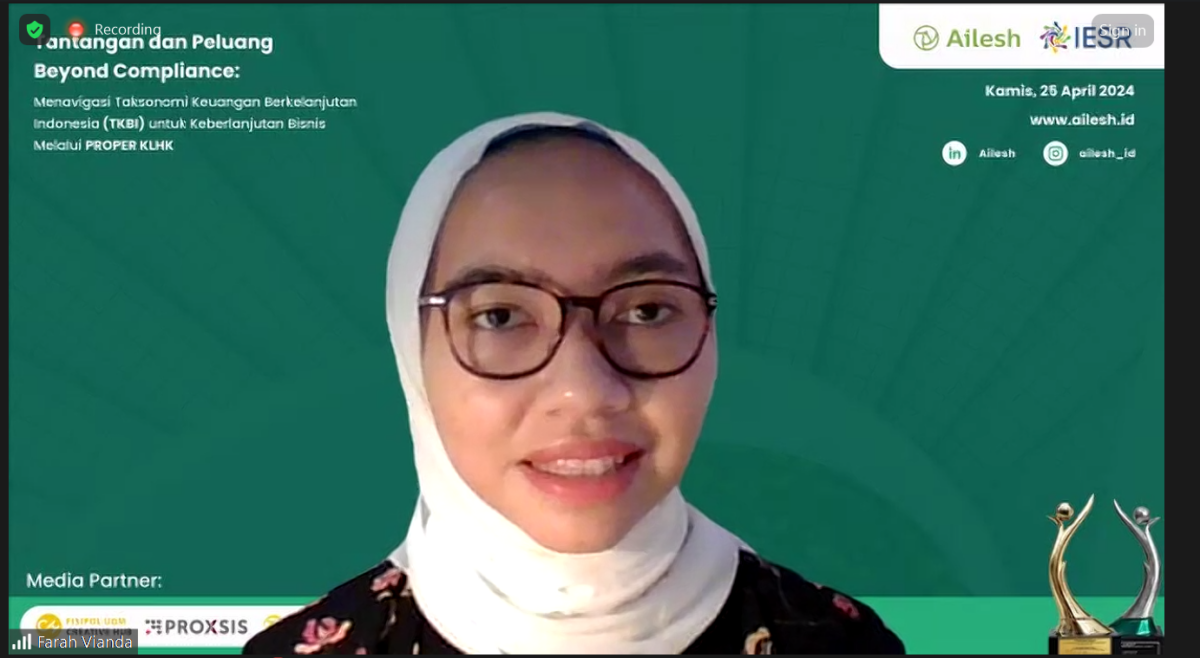Jakarta, April 25, 2024– Indonesia’s sustainable development requires economic activities that consider environmental and social aspects. To support this, the Government of Indonesia, through the Financial Services Authority (OJK), transformed the Indonesian Green Taxonomy Edition 1.0 into the Taxonomy for Indonesian Sustainable Finance (TKBI) in February 2024. TKBI classifies economic activities that balance economic, environmental, and social aspects. On the other hand, the Ministry of Environment and Forestry (KLHK) has the Company Performance Rating Program in Environmental Management (PROPER) to assess the environmental management performance of companies. PROPER assessments include the highest and lowest levels of environmental management. Companies with the lowest assessment twice can be prosecuted and revoked business licenses.
Farah Vianda, Coordinator of Sustainable Financing at the Institute for Essential Services Reform (IESR), explained that incorporating PROPER requirements into TKBI requirements will hopefully improve the implementation of TKBI at the industry level. This can also motivate business actors who still lack knowledge related to TKBI.
“With many energy and mining sectors involved in PROPER, this can improve the environmental compliance of these companies. PROPER is one of the important indicators in determining whether business activities have entered the green category. In TKBI, it is still done by self-assessment by financial institutions, and KLHK assesses PROPER and has followed certain steps,” said Farah in the Ailesh Beyond Compliance Webinar: Navigating TKBI Through PROPER on Thursday (25/4/2024).
However, Farah added that, in general, the implementation of PROPER has not been binding or mandatory so far. According to Farah, many companies register only to get the highest rating from PROPER to improve their reputation, especially in attracting green funding sources.
“Under these conditions, there is no significant connection between PROPER and TKBI. TKBI only serves as a reference and has not become a compulsory criterion for business classification. Therefore, in this scenario, PROPER has not served as a strong enough incentive to encourage the widespread implementation of TKBI,” said Farah.

